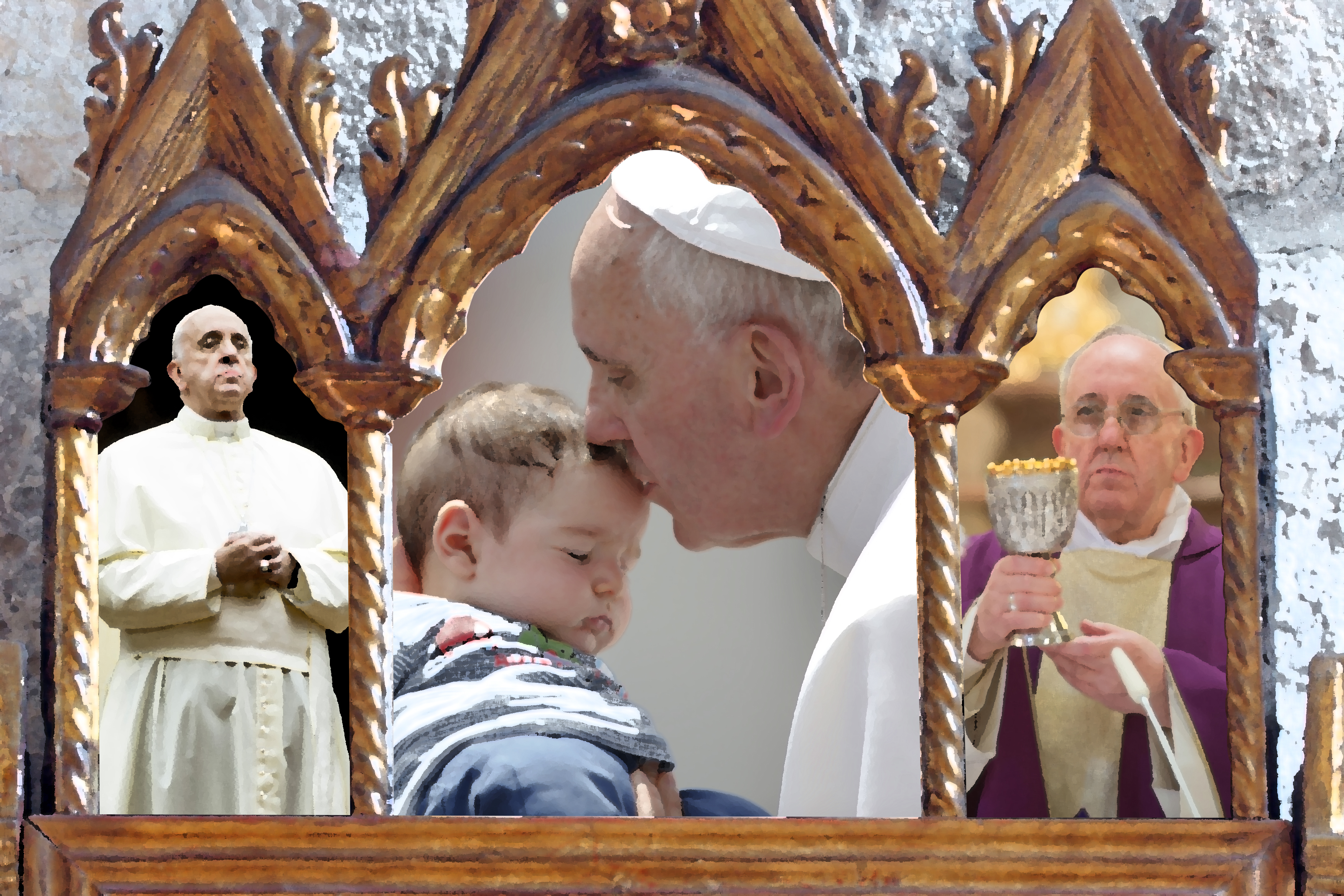The fledgling legacy of the great Pope Francis
Pope Francis has been on the job for two years. Here are his three greatest accomplishments.


Pope Francis has been on the job for two years. Here are his three greatest accomplishments so far.
1. A change in tone, not doctrine
If there's one thing everyone knows about the Francis papacy, it's that it represents a change in tone for the office. Francis has struck everyone with his key phrases — describing himself as "a sinner," saying "who am I to judge?" when referring to gay people who strive to follow Church teaching, calling for pastors with "the smell of the sheep," urging Christians to go out to "the peripheries" of life, denouncing a society where things and people are considered "disposable," and so on. Unlike his predecessors Benedict XVI and John Paul II, Francis is not an academic, but a pastor. He brings a refreshing and different style to the papacy.
The Week
Escape your echo chamber. Get the facts behind the news, plus analysis from multiple perspectives.

Sign up for The Week's Free Newsletters
From our morning news briefing to a weekly Good News Newsletter, get the best of The Week delivered directly to your inbox.
From our morning news briefing to a weekly Good News Newsletter, get the best of The Week delivered directly to your inbox.
Because the press is obsessed with getting the Catholic Church to change its teachings, this change in tone has been interpreted by the media as a willingness to change Church doctrine. And the only thing the press is more obsessed with than pushing its ideology is beating the drum of a narrative. That explains why the press has hailed the change of tone as portending future changes in doctrine, no matter how unlikely this is.
But a change in tone is still a big deal. Contrary to some caricatures of the Catholic Church as a giant army marching in lockstep to the pope's orders, in practice, there is a lot of autonomy in the precincts of the Church, and the pope does not have the practical resources to order everyone about. The papacy's main instrument for influencing the life of the Church at the everyday parish level is through his public speeches.
2. Vatican reform
Corruption of the Vatican tends to be an exaggerated phenomenon. But still, Francis has carried on reforms started by his predecessor to tackle the two biggest problems in the Vatican: financial shenanigans and accountability over clergy sex abuse.
A free daily email with the biggest news stories of the day – and the best features from TheWeek.com
On the latter front, when Francis set up a special commission to increase accountability in sex abuse, a lot of people were understandably skeptical: a committee is usually how people bury problems, and in any case, committees are scarcely known for expediency. But the committee has actually won plaudits for tackling the problem head-on.
On the financial front, the problem is less dishonesty than incompetence. For example, when the news appeared that the Vatican had "found" a lot of money it didn't know it had, the problem there was bad accounting, not embezzlement. Francis created a new Secretariat for the Economy within the Vatican to oversee its affairs, and appointed a widely respected, no-nonsense cardinal, the Australian George Pell, to head it. The big question mark whether the Vatican bureaucracy would try to scuttle this effort, and whether Francis would let that happen. A number of Italian Vatican bureaucrats tried to strangle the new Secretariat in the crib — but Francis would have none of it, and backed his handpicked reformer.
Tragically, corruption in the Roman Curia — whether actual corruption or the more banal kind, like bureaucratic ineptitude and balkanization — is as old as the Curia itself. Benedict tried mightily to reform the Curia, only to be stymied by bureaucratic trench warfare. If Francis could even marginally improve things, it would be a great legacy.
3. Rejuvenating spirituality in our daily lives
Our modern world has so much difficulty understanding Francis largely because people insist on seeing religion through the lens of politics. But make no mistake: Francis is a truly spiritual man, and this may be his greatest legacy.
The pope refers over and over again to the spirituality of his Jesuit order, which emphasizes discerning God's plan for you in the here and now. Jesuit spirituality is a spirituality of everyday life, which helps people discern what God wants them to do and how they can do it. Each one of us is called to render all things for the greater glory of God, and we become truly free from what separates us from God when we follow our calling.
In Latin America, this most Catholic of continents, and from whence Francis hails, people are buzzing about the rise of Pentecostalism and other charismatic forms of evangelical Protestantism. Latin Americans who are converting largely say they want a more personal relationship with God and a deeper experience of faith. In the preceding centuries of the Church in Latin America, for most people, Marian piety provided this spiritual feeling. But in the wake of Vatican II, Marian piety was often sidelined in favor of social activism.
More generally, and across history, a big failing of Catholicism has come in this experiential side of faith for everyday people. The Church has always had its mystics, of course, but it's easy for Catholicism, with its rites and laws, to be turned in everyday life into a simple and lifeless set of boxes to check and actions to perform.
Francis understands that getting rid of this sort of Catholicism, and instead emphasizing a strongly spiritual and living Catholicism for everyday Catholics is what will rejuvenate the Church. That is what he has oriented his legacy towards.
Pascal-Emmanuel Gobry is a writer and fellow at the Ethics and Public Policy Center. His writing has appeared at Forbes, The Atlantic, First Things, Commentary Magazine, The Daily Beast, The Federalist, Quartz, and other places. He lives in Paris with his beloved wife and daughter.
-
 One great cookbook: ‘Kismet: Bright, Fresh, Vegetable-Loving Recipes’
One great cookbook: ‘Kismet: Bright, Fresh, Vegetable-Loving Recipes’the week recommends The beauty and wonder of great ingredients and smart cooking
-
 Political cartoons for January 12
Political cartoons for January 12Cartoons Monday’s political cartoons include Mayflower colonisers, Lady Lawless, and more
-
 Golden Globes affirm ‘One Battle,’ boost ‘Hamnet’
Golden Globes affirm ‘One Battle,’ boost ‘Hamnet’Speed Read Comedian Nikki Glaser hosted the ceremony
